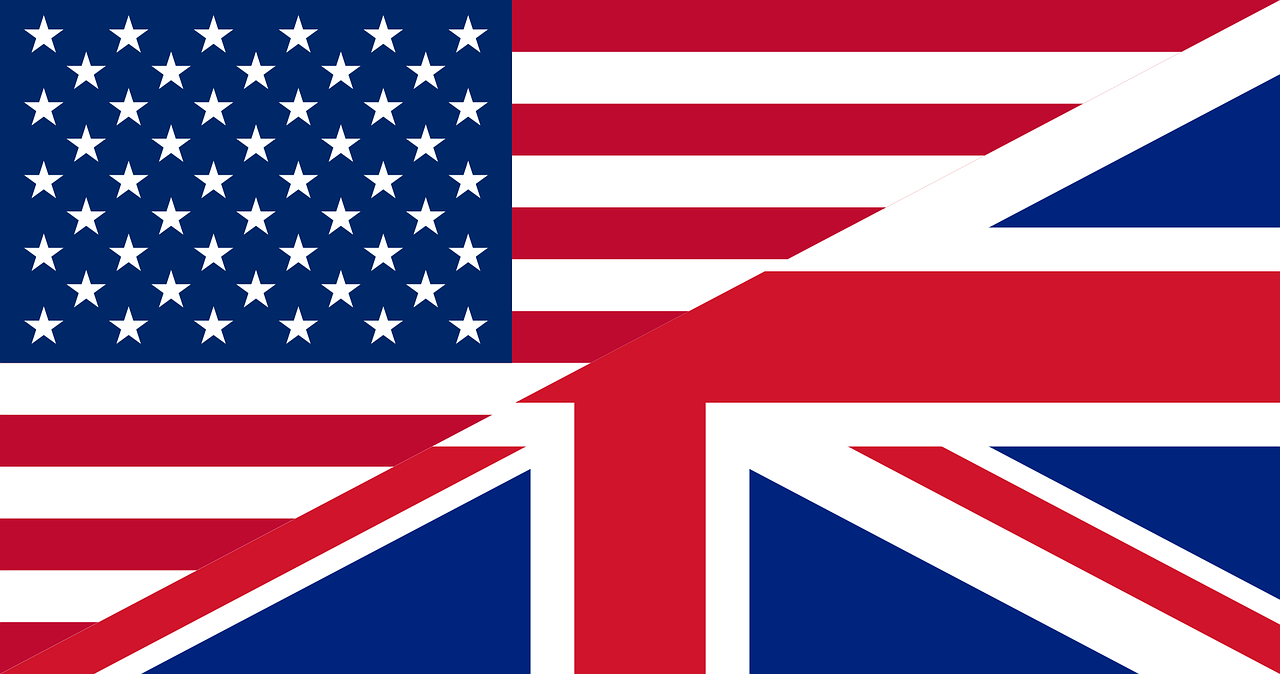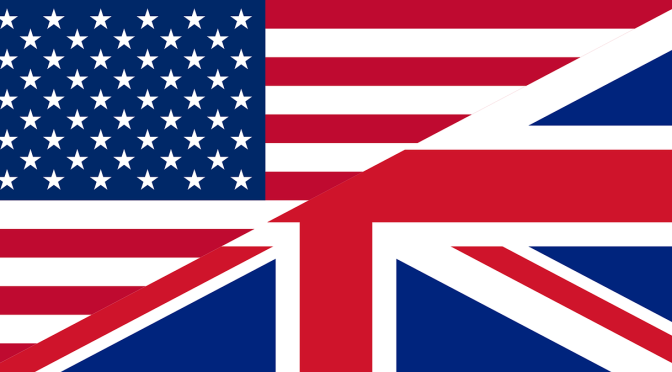- UK Reduce or eliminate Tariffs against American Products
- Trump removes 25% Tariffs on Steel & Aluminum
- Estimated USA Exports, $5Bn farmers & producers
- $700Mn Ethanol exports,
- $250Mn agricultural products like beef, etc…
- Streamline customs
- Establish high standard commitmentsof intellectual property, labor and environment.
- Secures supply chain of U.S. aerospace manufacturers through preferential access to high-quality UK components.
- The reciprocal tariff rate of 10%, as originally announced on Liberation Day, is in effect.
- United States agree to alternative arrangement for Section 232 tariffs on UK autos.
- 1st 100k vehicles imported to USA are 10% Tariff, extra are 25%

Historic U.S.-UK Trade Deal Boosts Exports, Jobs, and Security
On the 80th anniversary of Victory Day for World War II, President Donald J. Trump and UK Prime Minister Keir Starmer unveiled a landmark trade deal, heralding a new paradigm for the U.S.-UK special relationship. “This is going to boost trade between and across our countries. It’s going to not only protect jobs, but create jobs, opening market access,” Starmer declared. The agreement grants American companies unprecedented access to UK markets, boosts $5 billion in U.S. exports, and strengthens national security, setting a model for global trade. Here’s what it means.
The Deal: A Win for American Exporters
Announced as the Economic Prosperity Deal, the agreement delivers:
- $5 billion in new export opportunities for U.S. farmers, ranchers, and producers, including $700 million in ethanol exports and $250 million in beef and other agricultural products.
- Reduced or eliminated non-tariff barriers in the UK that unfairly discriminated against American products, such as non-science-based standards on meat, poultry, and dairy.
- Streamlined customs procedures for U.S. exports.
- High-standard commitments in intellectual property, labor, and environment.
- Preferential access to UK aerospace components, securing U.S. aerospace manufacturers’ supply chains.
- A secure supply chain for pharmaceutical products.
- Enhanced competitiveness for U.S. firms in the UK’s procurement market by closing loopholes.
President Trump hailed the deal’s impact: “The deal includes billions of dollars of increased market access for American exports, especially in agriculture, dramatically increasing access for American beef, ethanol, and virtually all of the products produced by our great farmers.” He added, “The UK will reduce or eliminate numerous non-tariff barriers that unfairly discriminated against American products. This is now turning out to be, really, a great deal for both countries.”
Tariff Adjustments and Security Measures
The deal aligns with Trump’s Liberation Day policy from April 2, 2025, which imposed a 10% reciprocal tariff on all countries to address trade imbalances. Under the new agreement:
- The 10% reciprocal tariff rate remains in effect for both nations.
- For UK auto exports, the first 100,000 vehicles imported to the U.S. annually face the 10% rate, while additional vehicles incur a 25% rate, replacing Section 232 tariffs.
- The U.S. recognizes UK efforts to combat global steel excess capacity and will negotiate an alternative arrangement to Section 232 tariffs on steel and aluminum, forming a new trading union for these metals.
These measures aim to level the playing field and enhance economic security, per the White House.
Economic Context: Addressing Trade Imbalances
In 2024, U.S.-UK total goods trade reached an estimated $148 billion. However, the UK’s average applied agricultural tariff of 9.2% outpaced the U.S.’s pre-April 2 rate of 5%, and UK tariffs on meat, poultry, and dairy often exceeded 125%, alongside restrictive non-tariff barriers. These created an unfair playing field for American workers, which the deal now tackles.
Trump’s broader trade strategy, launched on Liberation Day, targets America’s historic trade deficit through reciprocal tariffs. The U.S.-UK deal sets a precedent for other trading partners, signaling that reciprocal trade is the new standard.
Strategic Significance: A Golden Age
The agreement marks a milestone in Trump’s America First trade policy, reversing decades of unfair trade practices that disadvantaged U.S. workers. “This U.S.-UK trade deal will usher in a golden age of new opportunity for U.S. exporters and level the playing fields for American producers,” the White House stated. It also strengthens ties with a key ally, building on a special relationship rooted in history.
Discussions began with a April 18, 2025, call between Trump and Starmer, culminating in this deal. “This is a great deal for America,” Trump emphasized, while Starmer noted its job-creating potential, making it a win for both sides.
Why It Matters
The U.S.-UK trade deal delivers $5 billion in export opportunities, protects jobs, and secures supply chains in aerospace and pharmaceuticals. By slashing barriers and aligning tariffs, it boosts competitiveness and sets a model for global trade partners. As Trump advances economic and national security, this agreement could spark a new Golden Age—if other nations follow suit. For now, American farmers, workers, and businesses stand to gain.
The Fact Sheet READS “
ESTABLISHING A NEW PARADIGM FOR OUR SPECIAL RELATIONSHIP: Today, on the 80th anniversary of Victory Day for World War II, President Donald J. Trump and Prime Minister Keir Starmer announced a historic trade deal, providing American companies unprecedented access to the UK markets while bolstering U.S. national security. This is a great deal for America.
- President Trump: “The deal includes billions of dollars of increased market access for American exports, especially in agriculture, dramatically increasing access for American beef, ethanol, and virtually all of the products produced by our great farmers.”
- “The UK will reduce or eliminate numerous non-tariff barriers that unfairly discriminated against American products.”
- “This is now turning out to be, really, a great deal for both countries.”
- Prime Minister Starmer: “This is going to boost trade between and across our countries. It’s going to not only protect jobs, but create jobs, opening market access.”
- This trade deal will significantly expand U.S. market access in the UK, creating a $5 billion opportunity for new exports for U.S. farmers, ranchers, and producers.
- This includes more than $700 million in ethanol exports and $250 million in other agricultural products, like beef.
- It commits the countries to work together to enhance industrial and agricultural market access.
- It closes loopholes and increases U.S. firms’ competitiveness in the UK’s procurement market.
- It ensures streamlined customs procedures for U.S. exports.
- It establishes high standard commitments in the areas of intellectual property, labor, and environment.
- It maximizes the competitiveness and secures the supply chain of U.S. aerospace manufacturers through preferential access to high-quality UK aerospace components.
- It creates a secure supply chain for pharmaceutical products.
- The reciprocal tariff rate of 10%, as originally announced on Liberation Day, is in effect.
- The United States will agree to an alternative arrangement for the Section 232 tariffs on UK autos.
- Under the deal, the first 100,000 vehicles imported into the U.S. by UK car manufacturers each year are subject to the reciprocal rate of 10% and any additional vehicles each year are subject to 25% rates.
- The United States also recognizes the economic security measures taken by the UK to combat global steel excess capacity and will negotiate an alternative arrangement to the Section 232 tariffs on steel and aluminum.
- This deal creates a new trading union for steel and aluminum.
- This U.S.-UK trade deal will usher in a golden age of new opportunity for U.S. exporters and level the playing fields for American producers.
- Today’s action also sets the tone for other trading partners to promote reciprocal trade with the United States.
A FRAMEWORK TO BOLSTER ECONOMIC SECURITY: President Trump continues to advance the interests of the American people, enhancing market access for American exporters and lowering tariff and non-tariff barriers to protect our economic and national security.
- On April 18, President Trump had a call with Prime Minister Starmer to discuss our bilateral trade relationship.
- U.S. total goods trade with the UK was an estimated $148 billion in 2024.
- The UK average applied agricultural tariff is 9.2% while the U.S. average applied agricultural tariff (prior to April 2) was 5%.
- The UK maintains certain tariff and non-tariff barriers that restrict market access and create an unfair playing field for American workers and businesses.
- For example, the UK imposes tariffs that can exceed 125% on meat, poultry, and dairy products on top of maintaining non-science-based standards that adversely affect U.S. exports.
- On April 2, 2025, Liberation Day, President Trump imposed a 10% tariff on all countries to address unfair trade practices that have contributed to America’s trade deficit and imbalances in order to better protect American workers and our national security.
A MILESTONE IN ADVANCING AN AMERICA FIRST TRADE POLICY: Since Day One, President Trump challenged the assumption that American workers and businesses must tolerate unfair trade practices that have disadvantaged our workers and businesses for decades and contributed to our historic trade deficit.
- Reversing these conditions and addressing the lack of reciprocity in America’s trade relationships will bring about a new Golden Age and Make America Great Again.
- President Trump continues to advance the interests of the American people, enhancing market access for American exporters and lowering tariff and non-tariff barriers.
- The Economic Prosperity Deal with the United Kingdom is a critical step forward in a special relationship to promote reciprocal trade with a key ally and partner.”
Sources
- https://www.whitehouse.gov/fact-sheets/2025/05/fact-sheet-u-s-uk-reach-historic-trade-deal/
- Trade Deal Details: Information on the $5 billion export opportunity, tariff adjustments, and non-tariff barrier reductions is from the original text, attributed to White House announcements.
- Quoted Statements: Quotes from Trump (“The deal includes billions of dollars…”, “This is now turning out…”) and Starmer (“This is going to boost trade…”) are from the original text, tied to public statements.
- Trade Statistics: The $148 billion U.S.-UK goods trade figure, UK’s 9.2% agricultural tariff, and U.S.’s 5% pre-April 2 rate are from the original text; no specific links provided but implied from trade data.
- https://pixabay.com/vectors/flags-unites-states-great-britain-38754/
Author, Ryan Bridglal, 05-08-2025
#featured #bridgenewzcom #bridgenewz #breakingnews #breaking #news #facts #law #funding #finance #tariffs #tariff #trade #tradewars #tradedeal #deal #trump #president #donaldtrump #KeirStarmer #usa #uk #imports #exports #history
